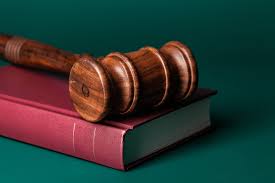Pre-trial collection of debt
In modern business and economic relations, cases of indebtedness are, unfortunately, quite common. Late repayment of debts can lead to serious financial problems and conflicts between the parties. Therefore, the issue of effective pre-trial debt collection is extremely relevant.
Before starting enforcement proceedings for debt collection, it is worth trying to resolve the issue in a pre-trial procedure. This stage involves sending the debtor an official demand for repayment of the debt within a specified period. Such a claim must contain a clear statement of the amount owed, the grounds for its occurrence, and a demand for its payment.
If the debtor does not respond to the pre-trial demand or refuses to repay the debt voluntarily, the next step may be to prepare a claim for debt collection in court. In the statement of claim, it is necessary to set out in detail the circumstances of the case, provide evidence of the existence of the debt (contracts, acts, invoices, etc.) and justify the amount of the debt.
During the trial, the court will carefully examine all the available evidence, listen to the explanations of the parties, and make a decision on debt collection or refusal to satisfy claims. If the claim is satisfied, the court will oblige the debtor to pay the debt, as well as court costs and fines (if such are provided for in the contract).
If the debtor does not comply with the court decision voluntarily, the creditor has the right to apply to the state executive service for forced collection of the debt. It is at this stage that enforcement proceedings begin.
The procedure for debt collection by the executive service involves a number of actions aimed at real repayment of the debt. In particular, the state executor has the right to seize property, accounts and other assets of the debtor, as well as collect the debt by withdrawing funds from the debtor's salary or other income.
In addition, within the framework of executive proceedings, other debt collection measures may be applied, such as seizing real estate, banning travel abroad, restricting the right to drive vehicles, etc.
It is important to understand that the procedure for forced collection of debt under a credit agreement or other obligations is quite long and requires certain costs on the part of the creditor. Therefore, before starting executive proceedings, it is necessary to carefully weigh all the pros and cons.
In some cases, it may be more appropriate to conclude a settlement agreement with the debtor or transfer the case to a collection agency. The latter specialize in debt collection and can offer more prompt and effective ways to solve the problem.
Therefore, pre-trial debt collection is an important stage that allows you to try to resolve the conflict peacefully and avoid unnecessary costs of time and money for a judicial review of the case. However, if the pre-trial settlement turns out to be fruitless, the creditor has the right to go to court and initiate enforcement proceedings for the compulsory collection of the debt. The main thing is to act within the law and protect your rights and interests by all available legal means.

































